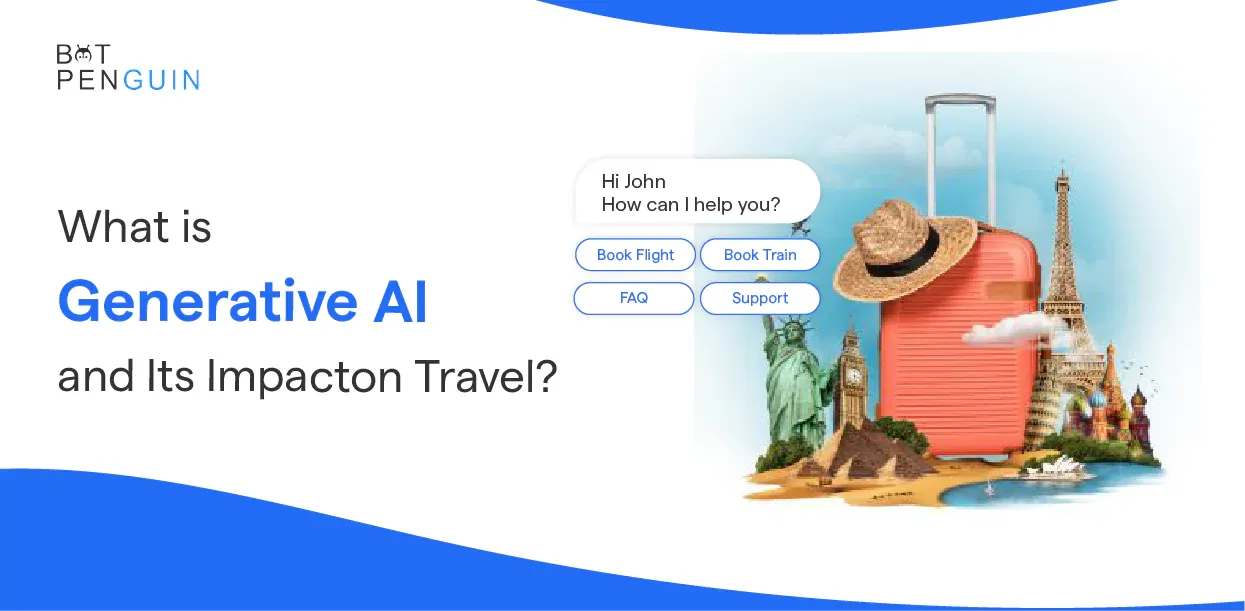Generative AI is taking the Travel industry by storm. Despite initial limitations, notably decreased accuracy post-2021, generative AI, represented by ChatGPT and Google's Bard, has garnered considerable attention from professionals and the public.
Unlike traditional AI, primarily used for analysis, this latest evolution employs large language models (LLMs) and chatbot functionalities to engage users and generate content based on their input.
This promises a transformative shift for travelers who may soon create tailored global itineraries aligned with their unique preferences, a development estimated to represent a $28 billion-plus opportunity for the travel industry.
A study by Gartner found that generative AI could save the travel industry $25 billion annually by 2025.
Join us as we get into the transformative potential of this technology in travel.
What is Generative AI?
Generative AI, a part of artificial intelligence, is making waves in the travel industry and revolutionizing how we experience travel. But what exactly is generative AI?
Generative AI refers to the technology that uses machine learning algorithms to generate new content, such as images, text, or even entire experiences, without human intervention.
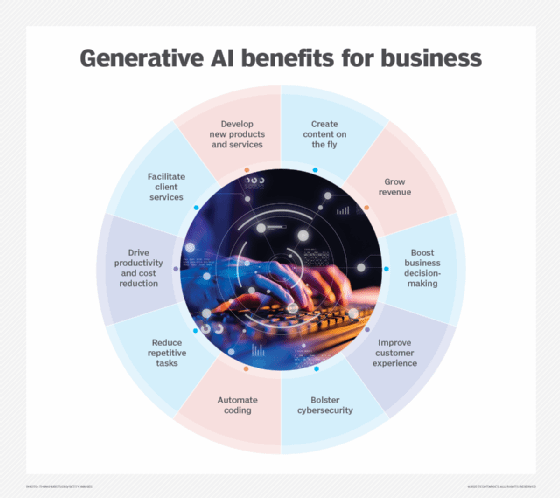
Unlike other AI technologies that rely on pre-determined patterns or data, generative AI can create fresh and unique content.
Difference between Generative AI and Other AI Technologies
The key distinction between generative AI and other AI technologies lies in their level of autonomy and creativity.
While traditional AI technologies are designed to analyze existing data and provide automated responses based on pre-defined rules, generative AI generates novel content.
It can think creatively and produce new output not explicitly fed during training.
How does Generative AI use Machine Learning Algorithms to Generate New Content?
Generative AI utilizes machine learning algorithms like deep neural networks to learn patterns and correlations from vast data. It then uses this learned knowledge to generate new content.
By training on large datasets, generative AI can produce realistic and high-quality content that mimics the patterns and characteristics of the input data.
Applications of Generative AI in the Travel Industry
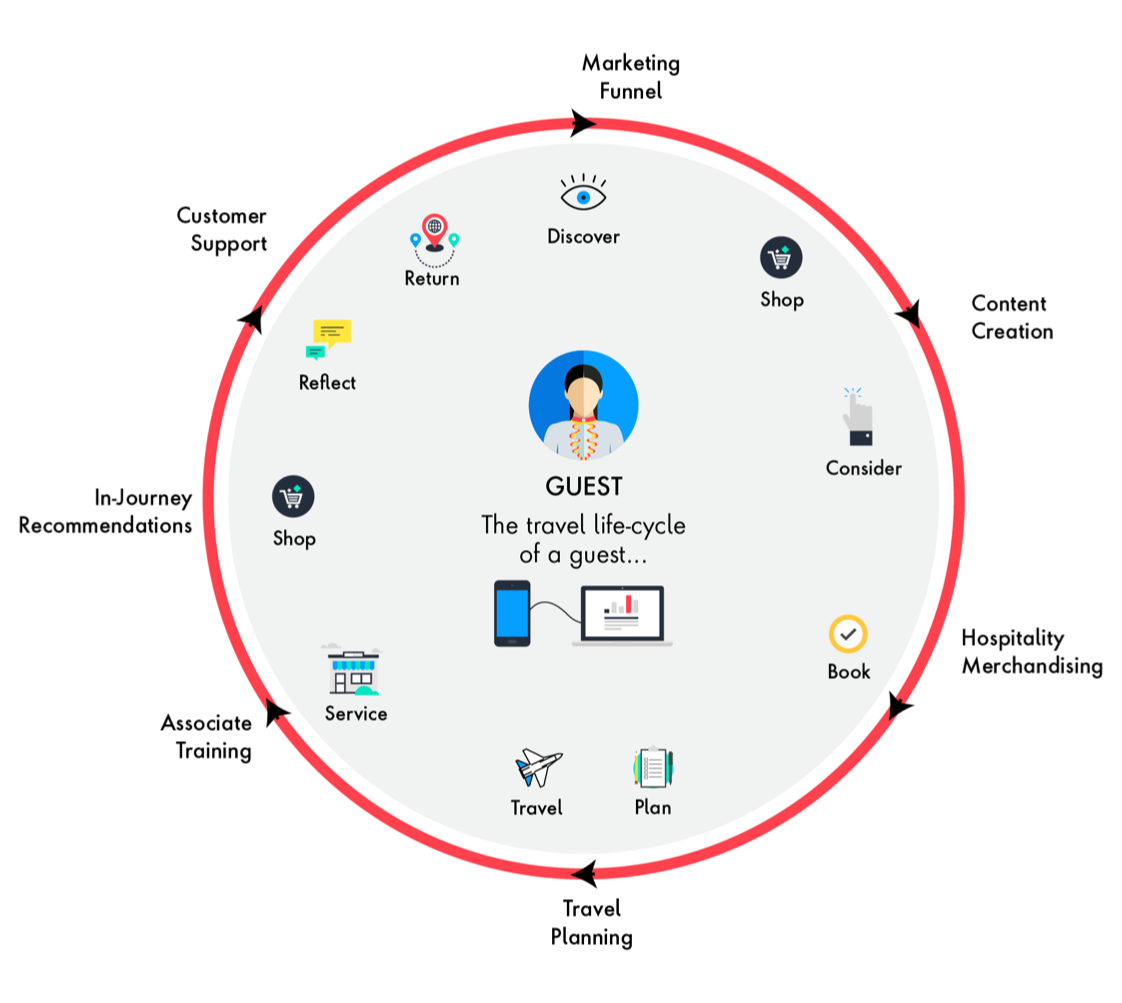
Generative AI has many applications in the travel industry, offering new and exciting possibilities for travelers and industry professionals.
Let's explore some key applications where generative AI transforms how we experience travel.
Use of Generative AI in Personalized Travel Recommendations
One of the most powerful applications of generative AI in the travel industry is personalized travel recommendations.
By analyzing vast amounts of data, including user preferences, travel history, and social media interactions, generative AI algorithms can create tailored recommendations for individual travelers.
These recommendations go beyond generic suggestions, considering personal preferences, budget constraints, and local events.
With generative AI, travelers can discover hidden gems, unique experiences, and personalized itineraries that match their tastes and preferences.
Improving Chatbot and Virtual Assistant Interactions using Generative AI
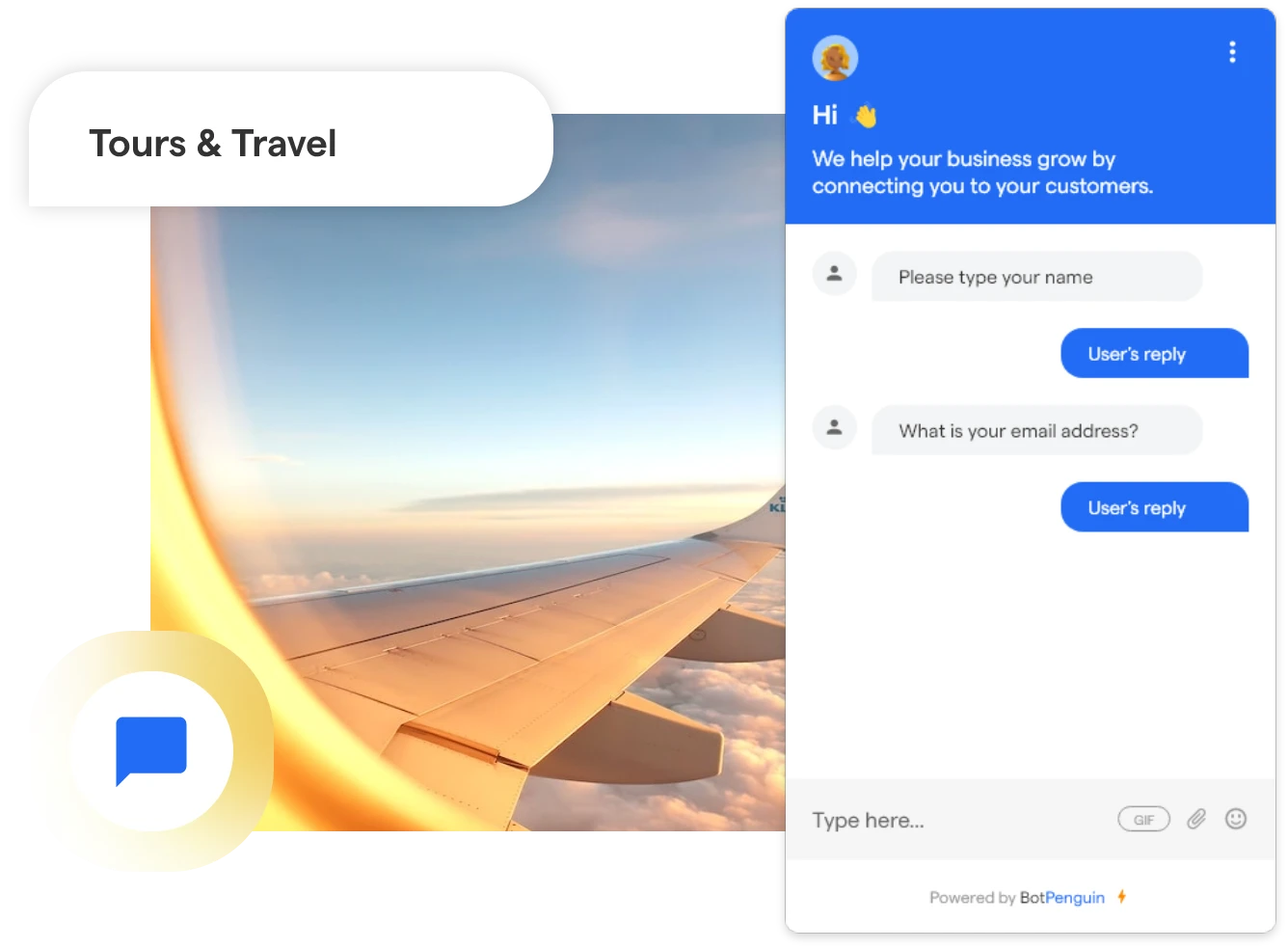
Chatbots and virtual assistants have become commonplace in the travel industry, helping travelers with everything from flight bookings to hotel recommendations.
However, the limitations of traditional chatbots have often led to frustrating and impersonal interactions. Generative AI is changing the game by enabling chatbots and virtual assistants to understand and respond to natural language more effectively.
With generative AI, these AI-powered assistants can engage in more fluid and conversational exchanges, understanding context, emotions, and humor.
This personal touch creates a more human-like communication experience, making travel planning and assistance a breeze.
Enhancing Virtual and Augmented Reality Experiences through Generative AI
Generative AI is transforming the virtual and augmented reality (VR/AR) world, elevating the level of immersion and realism.
By generating lifelike environments, characters, and interactions, generative AI enhances virtual travel experiences, making them more engaging and believable.
Imagine virtually exploring ancient ruins or swimming with dolphins in a realistic, immersive 3D simulation. Through generative AI, VR/AR experiences can transport users to unimaginable destinations, enabling them to experience travel in a whole new way.
Benefits of Generative AI in Travel Experiences
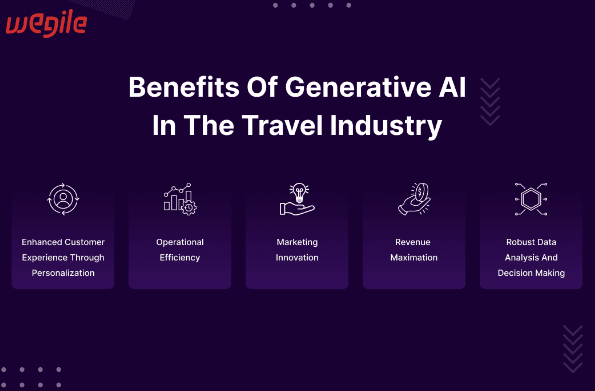
Generative AI is a game-changer in the travel industry, bringing many benefits that enhance how we explore and plan our trips.
Let's explore some of the key advantages generative AI offers to travel experiences.
Increasing Personalization and Customization in Travel Planning and Recommendations
Generative AI algorithms can analyze vast amounts of data, including user preferences, travel history, and online interactions. This enables them to create personalized travel recommendations tailored to individual travelers.
With generative AI, travelers can expect recommendations that match their unique tastes and preferences, taking into account factors like budget, interests, and even local events.
This level of personalization and customization makes travel planning a breeze, allowing travelers to discover new and exciting destinations that truly resonate with them.
Streamlining Customer Service and Communication with AI-Powered Chatbots
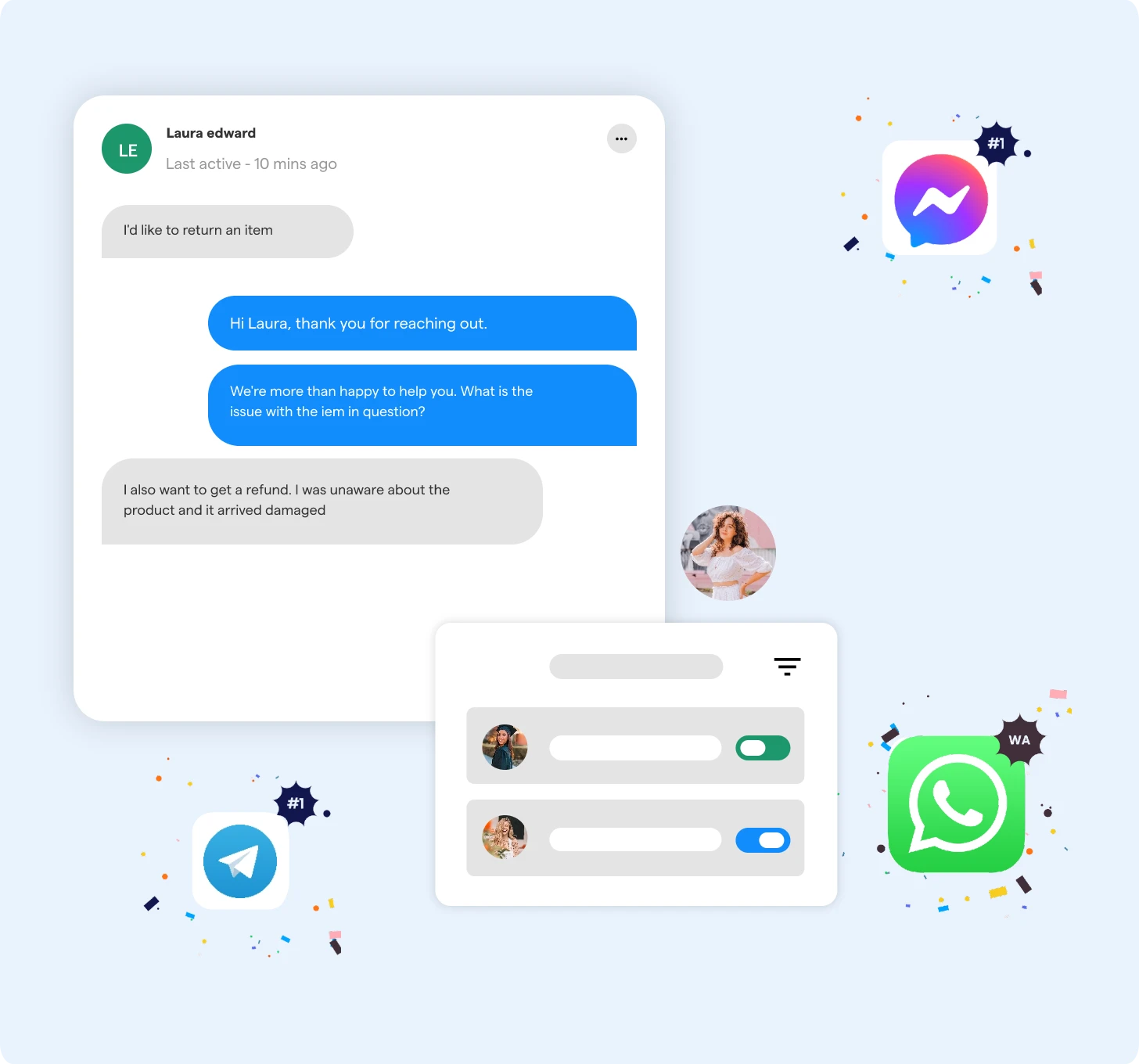
Chatbots and virtual assistants are becoming trusted companions in the travel industry, assisting travelers with various tasks like booking flights, making hotel reservations, and offering recommendations.
However, traditional chatbots can only sometimes engage in natural and meaningful conversations.
Generative AI changes this by enabling chatbots to understand and respond to human language more effectively.
Through generative AI, chatbots become more conversational, understanding context, emotions, and humor. This streamlined customer service enhances communication and satisfaction, making travel assistance a breeze.
Enhancing User Engagement and Satisfaction Through Realistic Virtual Experiences
Virtual reality (VR) and augmented reality (AR) have become increasingly popular in the travel industry, offering a glimpse into destinations before even setting foot on them.
Generative AI takes these experiences to the next level by generating lifelike environments, characters, and interactions.
Imagine virtually walking through the narrow streets of an ancient city or feeling the thrill of paragliding over breathtaking landscapes.
Generative AI injects realism into these virtual experiences, enhancing user engagement and satisfaction.
Travelers can explore destinations and try out activities in immersive simulations, providing a taste of what's to come in their travels.
Challenges and Ethical Considerations of Generative AI in Travel
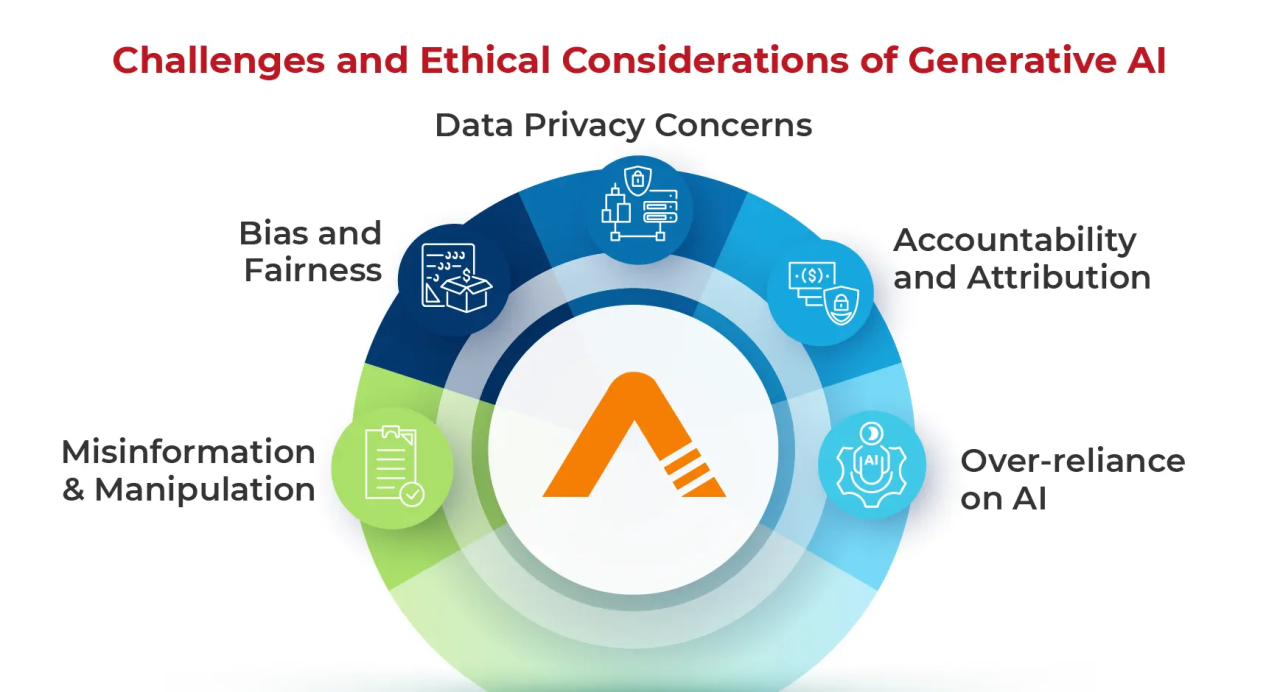
While generative AI presents exciting possibilities, it raises some important ethical considerations and challenges.
Let's explore some key issues that must be addressed to ensure the responsible and ethical use of generative AI in the travel industry.
Privacy Concerns and Data Protection in Generative AI Applications
Generative AI requires access to vast amounts of personal data to create personalized recommendations and experiences.
This raises concerns about privacy and data protection. Travel companies must prioritize user privacy and employ robust security measures to protect sensitive information.
Transparency and consent are crucial, ensuring that travelers understand how their data is used and giving them control over its usage.
The travel industry can build trust and maintain a strong customer relationship by addressing privacy concerns.
Suggested Reading:
Ready to Implement a Travel Chatbot in 9 Steps
Ensuring Responsible use of Generative AI to Maintain Trust in the Travel Industry
As generative AI becomes more prevalent, it's essential to ensure responsible and ethical use of this technology. Travel companies must use generative AI to benefit users without compromising their trust.
This involves avoiding deceptive practices and being transparent about using generative AI in creating content.
By maintaining ethical standards, the travel industry can build a reputation for reliability and trustworthy recommendations, fostering positive user experiences.
Addressing Potential Biases and Ethical Implications in AI-Generated Content
Generative AI algorithms learn from vast datasets, which may contain biases or inaccuracies that can unintentionally influence the generated content.
Travel companies must actively address these biases to avoid perpetuating inequalities and stereotypes.
Promoting diversity, equity, and inclusivity in the content generated by generative AI algorithms is crucial.
This requires continuous monitoring, evaluation, and intervention to ensure fair and ethical outcomes.
Suggested Reading:
Streamlined Assistance with the Help of Travel Chatbots
Examples of Generative AI in the Travel Industry
Let’s explore some fascinating case studies and showcase the innovative applications of generative AI in travel experiences.
Additionally, we will highlight the successful customer service improvements achieved through generative AI adoption.
Case Studies of Travel Companies Successfully Using Generative AI
Generative AI is increasingly used in the travel industry to enhance customer experiences, automate processes, and improve efficiency.
Here are some examples of generative AI applications in the travel sector:
Marriott International - Revolutionizing Customer Service

Marriott International, a global leader in the hotel industry, has harnessed the power of generative AI to transform its customer service.
Their AI-powered chatbot, known as "Marriott Chatbot," is a virtual concierge, assisting guests with everything from room bookings to personalized recommendations for local attractions.
The chatbot provides seamless and efficient interactions by utilizing Natural Language Processing (NLP), improving guest satisfaction and personalized experiences.
Skyscanner - Simplifying Travel Planning
Skyscanner, a renowned travel search engine, has leveraged generative AI to enhance the travel planning experience for its users.
Their AI-powered chatbot, "Sam," acts as a personal travel assistant, offering users a wide range of services such as flight and hotel bookings, itinerary management, and even tailored recommendations based on individual preferences.
Through the integration of generative AI, Skyscanner has successfully simplified the travel planning process, saving users both time and effort.
Potential Future Developments and Advancements in Generative AI for Travel
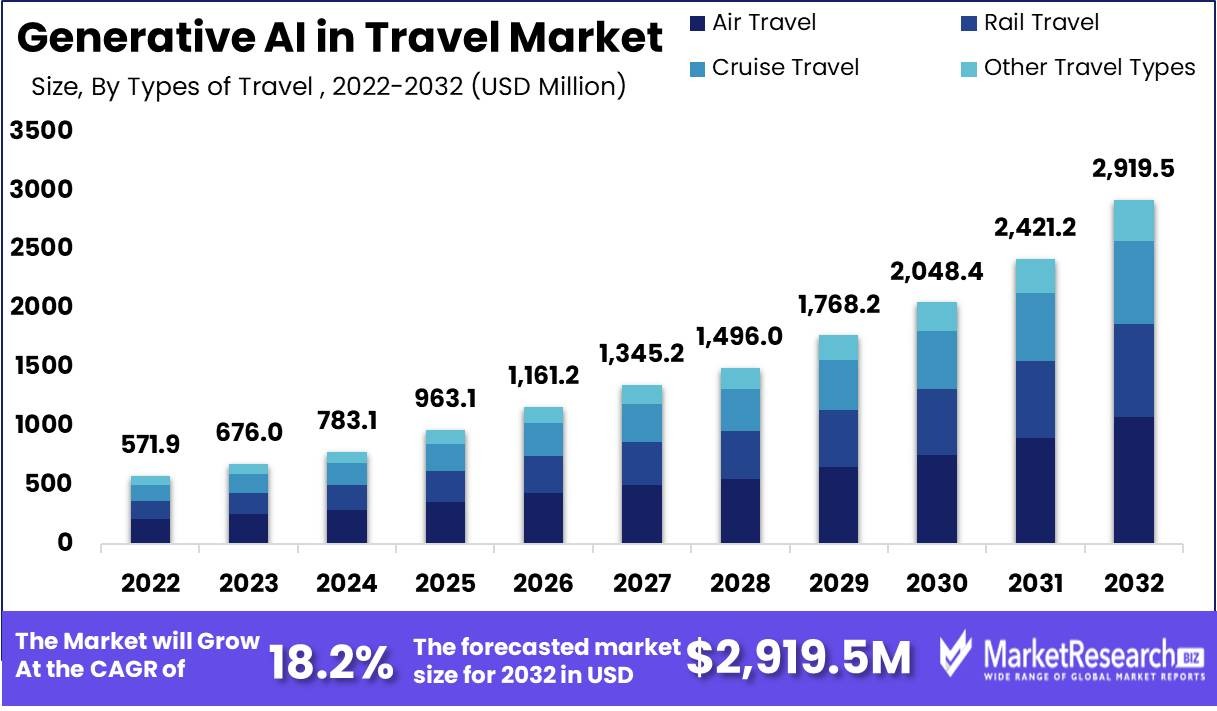
As technology advances, the potential for generative AI in the travel industry appears boundless, with exciting prospects on the horizon.
Here are some potential future developments to look for:
Emotion Recognition for Personalized Experiences
Generative AI can recognize and interpret emotions.
This technology could adapt travel experiences based on a traveler's emotional state, whether customized content to uplift their mood or offer assistance and suggestions when they feel overwhelmed or stressed.
This personalized approach ensures that each traveler's journey is optimized to suit their emotional well-being.
Augmented Reality Integration for Enhanced Real-Time Guidance
By combining generative AI with Augmented Reality (AR) technology, travelers could benefit from real-time guidance and support during their trips.
AR overlays could provide travelers with contextual information and navigation assistance, highlighting points of interest, historical facts, and useful tips.
Such integration could revolutionize travelers' exploration of destinations, ensuring a richer and more immersive experience.
Conclusion
Generative AI substantially advances AI system capabilities, providing unique and creative solutions in the travel sector.
Generative AI has the potential to transform the way we plan and enjoy travel, from personalized suggestions to virtual travel experiences and intelligent chatbots.
Travel companies can create unmatched customer experiences and drive industry innovation by leveraging the potential of Generative AI.
As the field of artificial intelligence grows, staying current on the newest research and trends is critical.
In the travel business, adopting Generative AI holds the key to opening new possibilities, driving the sector into an exciting future of personalized, immersive, and unforgettable travel experiences.
Frequently Asked Questions (FAQs)
How is Generative AI enhancing travel booking and itinerary planning?
Generative AI can analyze preferences and data to suggest tailored travel options, creating more efficient and customized itineraries.
Can Generative AI-powered chatbots provide travel assistance and support?
AI chatbots can assist travelers with bookings, answer questions, and provide real-time support, improving the travel experience.
What impact does Generative AI have on content creation and marketing in the travel industry?
Generative AI can automate content generation for travel blogs, websites, and social media, saving time and ensuring consistency.
Are there privacy concerns when using Generative AI for travel recommendations?
Privacy concerns can arise, as AI may use personal data to make recommendations. Travel companies should address these concerns transparently.
How is Generative AI being used in language translation and communication during travel?
Generative AI can facilitate real-time translation, breaking down language barriers for travelers in foreign countries.
